Women in mathematics around the world
On this page you will find a selection of profiles of some female mathematicians from Latin America. Please let us know if you are aware of other good sources which might be included.
Argentina
Cora Ratto de Sadosky (1912 – 1981)
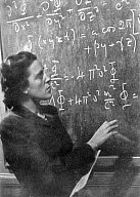
Here is a biography (Spanish) of Cora Ratto de Sadosky (Cora Sadosky’s mother), a pioneering woman in mathematics who became a professor of mathematics at the University of Buenos Aires, Argentina. Here is another biography in English.
Cora Sadosky (1940 – 2010)
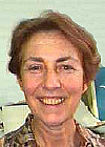
Cora Sadosky, daughter of Cora Ratto de Sadosky, was born in Buenos Aires. Her father, Manuel Sadosky, was a founding director of the Computer Science Center at the university. Cora received her Ph.D. from the University of Chicago in 1965. She served as President of AWM 1993-1995.
Vera W. de Spinadel (1929 – )
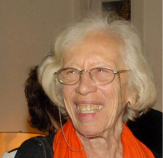
Here is a curriculum of Vera Martha Winitzky de Spinadel.
Vera received her PhD in Mathematics in 1958 at Buenos Aires University (UBA), where she was awarded the emeritus professor status in 2010. Vera directs the Mathematics and Design Lab and Center and is Logomyd President of the International Society of Mathematics and Design. This interdisciplinary Society provides academic identity to researchers working in mathematics and design.
Brazil
Keti Tenenblat

Keti Tenenblat was born in 1944 in Turkey, where she attended her first six elementary school years at an Italian school. In 1957, her family emigrated to Brazil. She had a distinguished career as a mathematician working in differential geometry in Brazil, and then became emeritus professor at the University of Brasilia.
Keti Tenenblat was the first woman to be president of the Brazilian Mathematical Society and became the first female member of the Brazilian Academy of Sciences in 1991. A tribute to K. Tenenblat written by her advisor, M. do Carmo, can be found here.
Cuba
Lilliam Margarita Alvarez Díaz
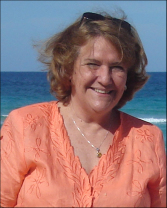
Lilliam was born in Cuba, where she received her PhD in Physics and Mathematics in 1989. Her area of expertise is in Nonlinear Partial Differential Equations with applications in Engineering and Physics. She has advised more than 20 female PhD students in Cuba, Mexico, Venezuela, Brazil and Argentina.
In 1998 she earned the National Prize for the Best Scientific Book written in Cuba entitled “Métodos Numéricos del Análisis Matemático”. She is a great promoter of gender discussions in Science and Technology and has written many papers on the subject, among which the 2010 book entitled “To be a woman in science or to die trying”.
She is a Merit Member of the Cuban Academy of Sciences, where she is the head of the Commission of Women in Sciences and of the Group of Promotion of Sciences.
Since 2008 she has been a member of the World Academy of Science for the developing world,(TWAS) and member of the Election Committee for Mathematics. She is member of the ICSU-Regional Scientific Commitee for Latin America and the Caribbean where she participates actively in the Program for Strengthening of Mathematics Education in the region. She is also Co-chair of the IANAS Program of Women in Science. IANAS is a Network of the Academies of Sciences in the Americas.
Mexico
Gabriela Araujo

Gabriela Araujo works at the Institute of Mathematics of the National Autonomous University of Mexico (UNAM) in the campus Juriquilla in the state of Querétaro. Her areas of speciality are Discrete Mathematics and Graph Theory. More precisely she works in finite geometries and cage graphs, and is one of the international experts in this topic. She has been a member of the National System of Researchers (SNI) in Mexico since 2002.
Gabriela pursued her undergraduate and postgraduate studies at UNAM and later held a posdoctoral position at the Universidad Politecnica de Catalunya (UPC) in Barcelona.
In 2003 she received the award "Sofía Kovalevskaia 2003" presented by the Mexican Mathematical Society and the Sofía Kovalevskaia Foundation to young mathematicians with the purpose of supporting and boosting their careers.
In 2013, she received the "Sor Juana Inés de la Cruz" prize, awarded each year by the UNAM to highlight women's research. The same year, she was selected to become fellow of the Mexican Academy of Sciences.
She has organised many mathematical conferences both national and international, particularly in her area of speciality, for example the ACCOTA (International Workshop on Combinatorial and Computational Aspects of Optimisation, Topology and Algebra).
Gabriela is very interested in supporting the careers of women in science. She is currently the coordinator of the Commission of Gender and Equality of the Mexican Mathematical Society. In January 2014 she co-organised the “First Meeting of Mexican Women Mathematicians”.
Peru
Yboon Garcia Ramos
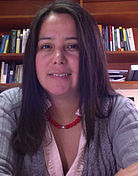
Y. Garcia Ramos was the first woman to obtain a PhD degree from UNI-IMCA (Universidad Nacional de Ingeniería – Insituto de Matemática y Ciencias Afines) in Lima. She works in applied mathematics and mathematical economics.
Paraguay
Gladys Ortiz Granada

Gladys Ortiz Granada is professor at UNA, the National University of Asunción in Paraguay. Gladys organized the first Paraguayan Congress in Pure and Applied Mathematics in 2011, see also here.
Gladys is the local coordinator of a new master program on Applied Mathematics at her University. This program is part of the activities led by the so-called Montevideo group, gathering Universities from Argentina, Brazil, Paraguay and Uruguay.
Uruguay
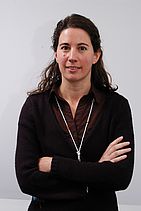
Adriana Piazza, Universidad Tecnica Federico Santa Maria, Valparaíso , Chile
Adriana works in optimisation, sustainable management of natural resources and mathematical economics.